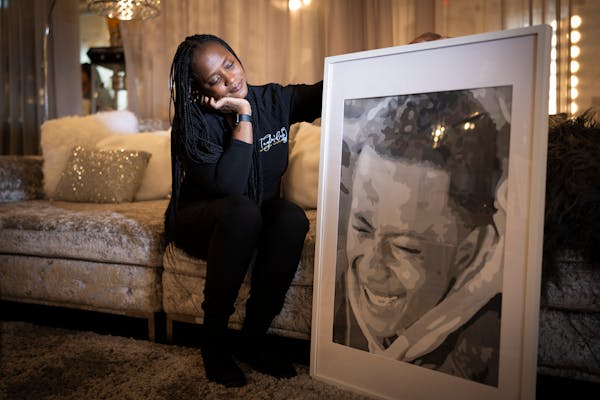Guled Hashi Mohamed and the man accused of killing him weren't strangers when they had a seemingly random encounter outside a Minneapolis bar Sunday night.
There had been bad blood between Mohamed, 26, a college graduate, and Biyamin Omar, who may have a gang affiliation, authorities say.
Police said that as two men approached a parked car in which Mohamed was a passenger, his friend drove it away. But the driver stopped a few moments later, and Mohamed got out and yelled: "You know me. Why are you following me?"
After he got back in, another man ran toward the car and fired two or three shots through the rear window, police say. Mohamed was struck in the head and died 11 hours later at Hennepin County Medical Center.
On Friday, Omar, 28, was charged with second-degree murder, accused of firing the shots. He has denied any involvement in the killing, the charges said.
Amina Mohamed, one of Guled Mohamed's seven siblings, said no one in her family is familiar with Omar, either as friend or foe of her brother. Older women in the Somali community do know of him, she said. They told her he frequently hung out at a Somali mall in south Minneapolis.
Police are saying little about the case because they want to talk to more witnesses. While they wouldn't discuss motive, the case was assigned to the Hennepin County attorney's gang unit for charging.
Omar, of Hopkins, was arrested Thursday and is being held in lieu of $2 million bail. County Attorney Mike Freeman said Friday his office will pursue a first-degree murder charge, which would carry a mandatory life sentence if Omar is convicted.
Mohamed, of Burnsville, was a graduate of Minnesota State University, Moorhead; he volunteered for AmeriCorps and planned to attend graduate school at St. Cloud State University, family said. He had a criminal record that, in addition to minor offenses, included a 2010 felony conviction for terroristic threats, for which he was sentenced to probation.
His family said he came to the United States from Somalia at age 12 and worked hard to attend college and support his family. He was the father of 6-month-old Fatimah and his wife was expecting a second child.
Police, community praised
On Friday, Freeman and Minneapolis police Capt. Amelia Huffman praised police work in the case and those in the community who came forward to help. Police found and interviewed Omar the night of the shooting because two witnesses identified him by his shirt, the charges said.
"The people that have come forward show community sentiment on this case," Huffman said. "You see how quickly the suspect was in custody and charges were filed. It makes all the difference in the world."
It appears Mohamed was trying to avoid a confrontation when he and Omar ran into each other about 11:30 p.m. Sunday, she said. After the two men came up to the parked car in which Mohamed was sitting and the driver pulled away, the two men gave chase, Huffman said. She wouldn't say if it was on foot or by car.
Omar said he was in the area and ran into a nearby bar with two men after the shooting, according to the charges filed Friday. He said he didn't see anyone shooting or with a gun.
Mohamed didn't have a weapon, Freeman said.
Amina Mohamed, Guled's sister, said she had expected a quick arrest in the case. "We knew this case was different from any other case because we know our brother would not be involved with people like that and jeopardize his life and himself like that," she said.
At a news conference, Freeman said that prosecutors have a strong case, but that they urge people to come forward to fill some holes.
"Any prosecutor will tell you they want a confession, DNA, fingerprints and five eyewitnesses," he said. "We want everything we can get."
At a vigil for Mohamed earlier this week, some complained that police weren't working hard enough on cases involving the Somali community. Freeman said he understands why some Somalis may distrust authority because of how their government operated.
At the same time, he cited convictions in several difficult and high-profile local cases involving Somali victims.
The bottom line, Freeman said at the news conference at the government center, is too many guns in the street.
"If the defendant didn't have a gun, we wouldn't be here," he said.
Staff writer Abby Simons contributed to this report. David Chanen • 612-673-4465

Neal: What happens after you win a national title?

Hennepin County Attorney inks contract with D.C. law firm to prosecute trooper Londregan case

Defense attorneys in Feeding Our Future trial cast doubt on FBI's meal fraud investigation

Protesters hold dueling Gaza rallies at University of Minnesota

